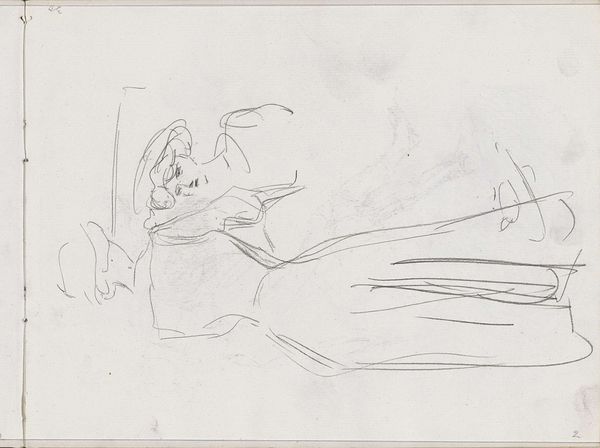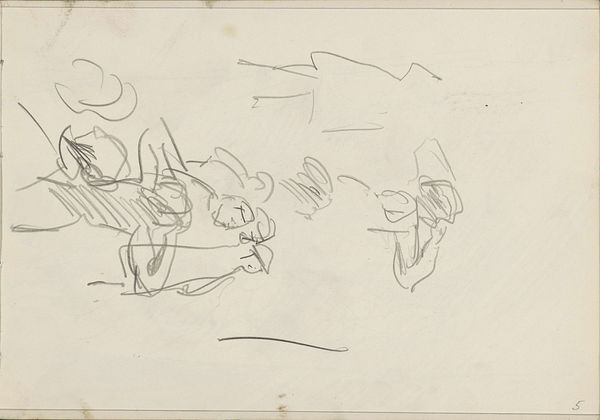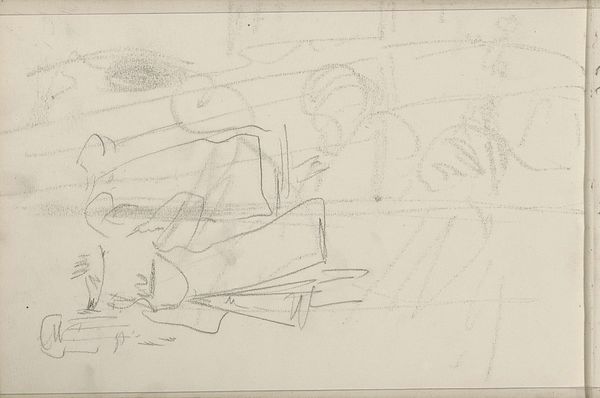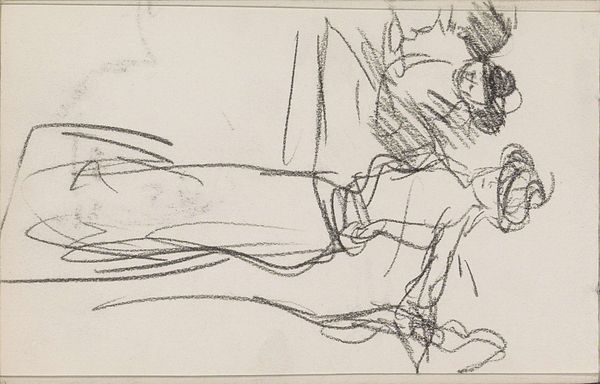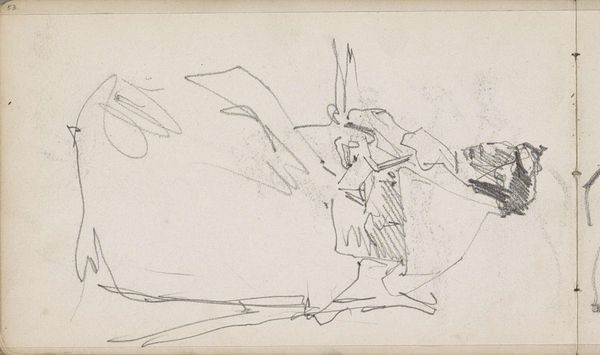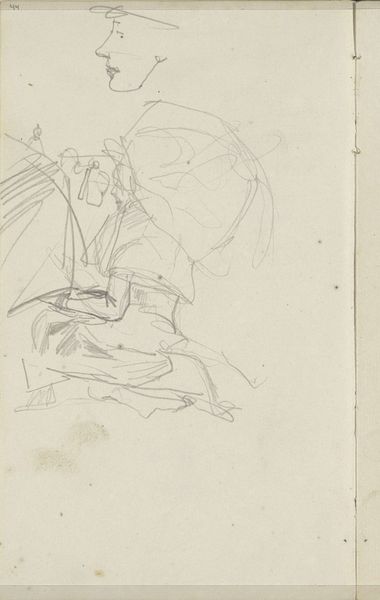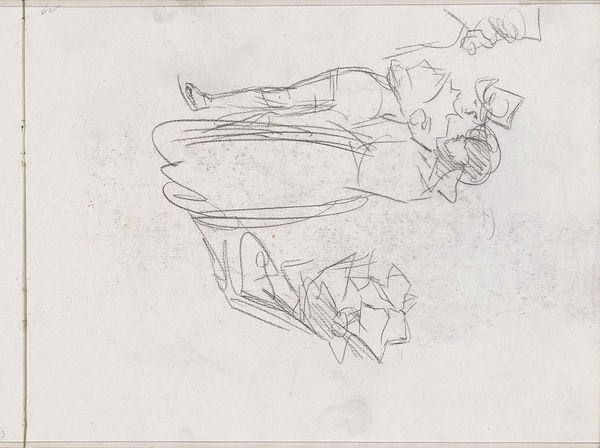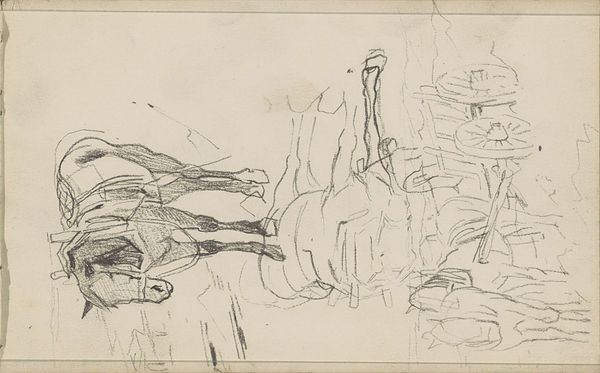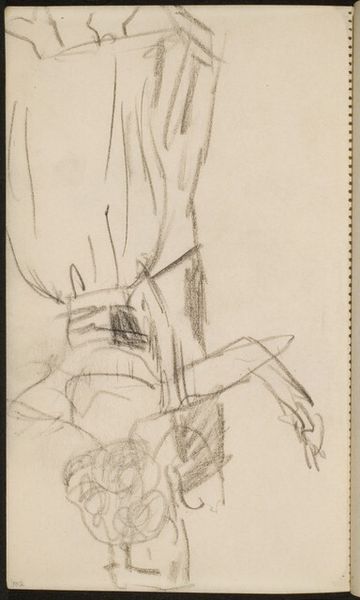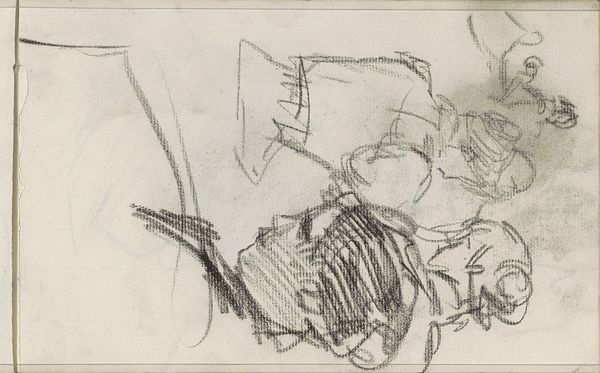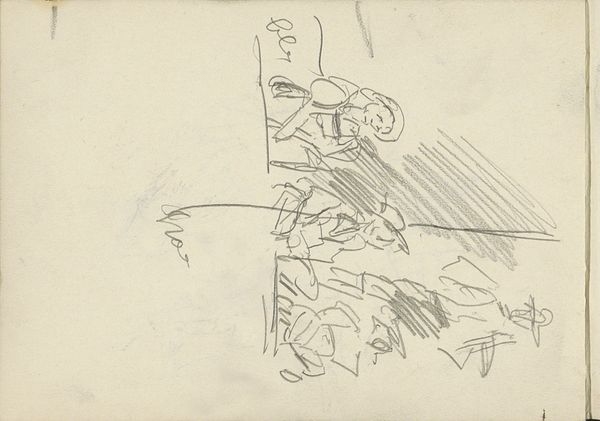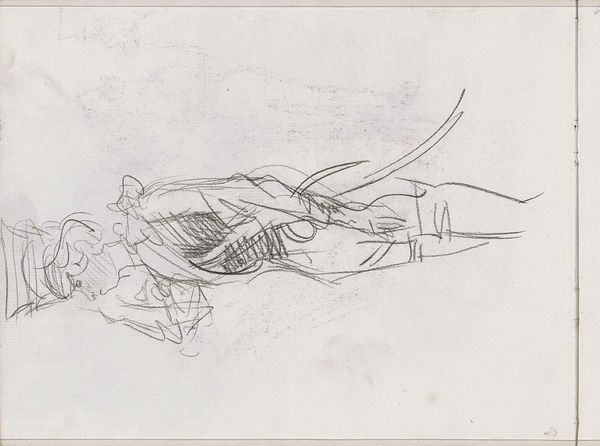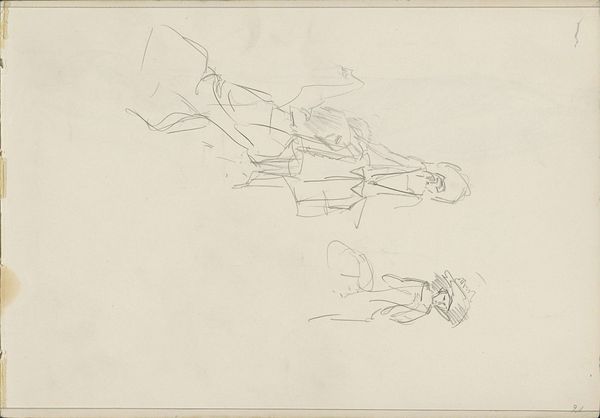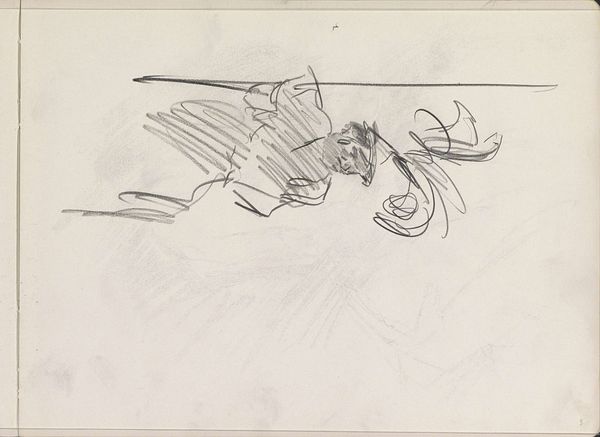
Copyright: Rijks Museum: Open Domain
Curator: Here in the Rijksmuseum, we see "Drinkende vrouw, in profiel," or "Drinking Woman, in Profile" a pencil drawing by Isaac Israels, created sometime between 1875 and 1934. What's your initial impression? Editor: It feels almost secretive, you know? Like catching someone in a private moment, the kind of casual intimacy we rarely see captured. The unfinished quality only adds to that fleeting impression, like a whispered confidence. Curator: The profile view itself carries certain connotations. Historically, profile portraits often denoted status or commemorated specific virtues. However, here, the quick, almost dashed lines suggest more of an impression, aligned with Israels’ commitment to capturing modern life. What meanings might you infer from her act of drinking? Editor: To me, it’s a symbol of release, maybe even escape. It could represent comfort, or a pause in the demands of daily life, or just satisfying an ordinary necessity. You feel the weight of the drink itself, a small act loaded with so much implication. And the choice of a common, 'everyday' scene places her actions in conversation with ours. Curator: Indeed, such emphasis on everyday activity aligns closely with Impressionistic principles. Israels sought to capture the sensory experience, to show life as it was immediately perceived rather than in idealized forms. I wonder about the semiotics of thirst, a primal drive depicted here. Editor: Thirst is deeply human, so she’s not a symbol of an elevated being, rather a reminder that we're all flesh and bone needing replenishment, however temporary. I guess that the power lies precisely in its ambiguity. The drawing isn't prescribing an emotion or moral, only observing an instant of lived experience. I also love that the pencil rendering reflects that impermanence. Curator: Well, this piece exemplifies how simple, fleeting observations become powerful windows into broader cultural and personal understanding. Israels’ study gives a kind of grace to the momentary act. Editor: Agreed. It’s like he's telling us, “Look closely; these ordinary moments are where real life unfolds.” Which is kind of a beautiful thing to realize.
Comments
No comments
Be the first to comment and join the conversation on the ultimate creative platform.
